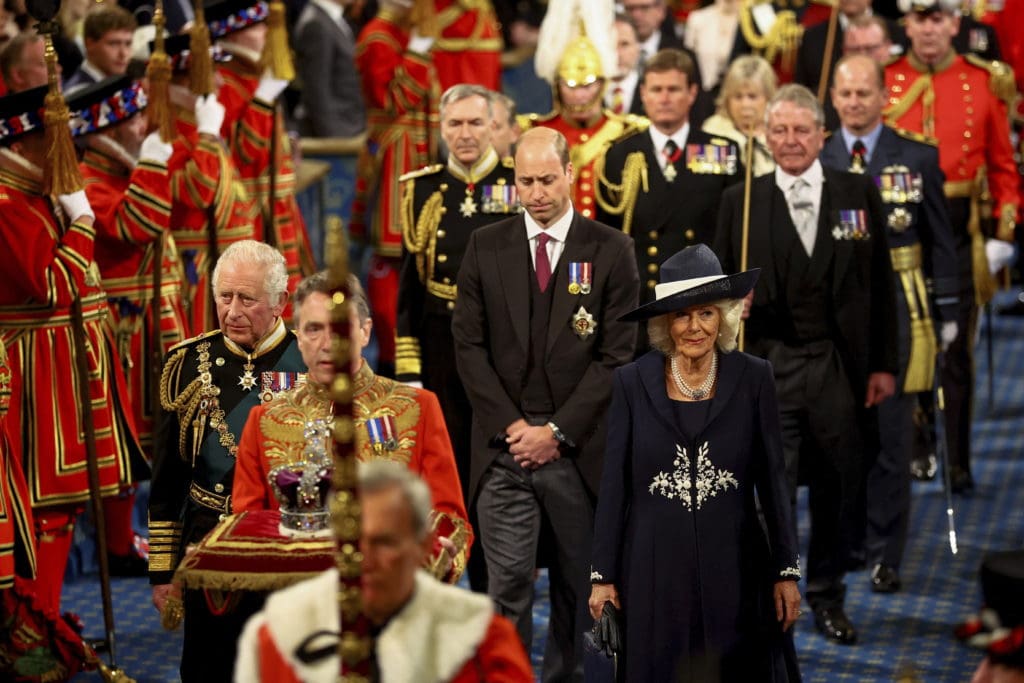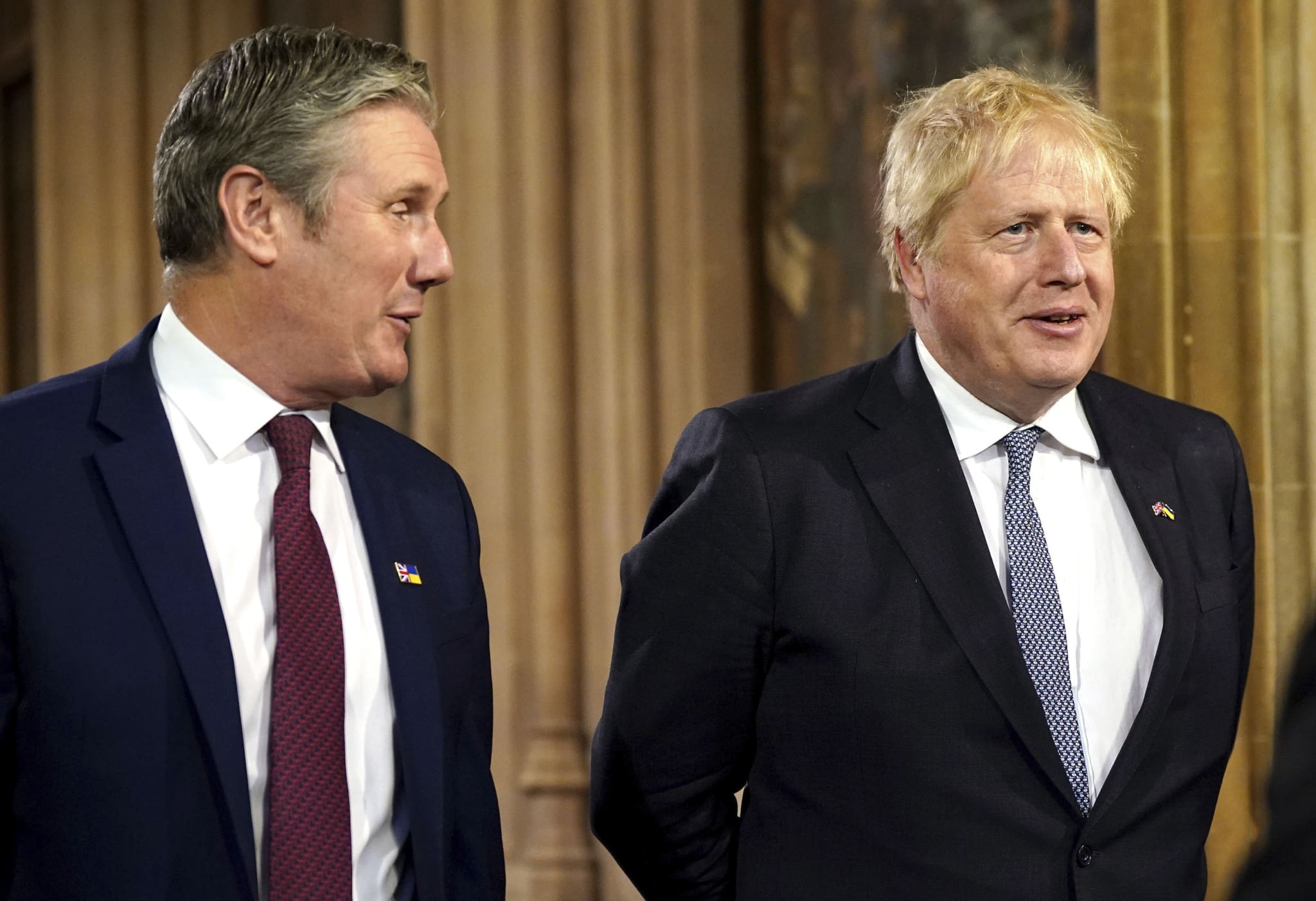The government of Boris Johnson has faced an endless list of accusations since its accession to power in 2019, except for one: being too “conservative.” In fact, the Johnson government’s impotence at meeting the expectations of the Brexit movement, its complacency about the Channel migrant crisis, and its endless praise for multiculturalism and diversity, have led some to question its conservative credentials entirely. That is why Tuesday’s list of new policy proposals, announced during the Queen’s Speech, were met with a certain degree of shock.
To the casual observer, the main story of the day was that Queen Elizabeth II could not attend the ceremony in the Houses of Parliament, and her eldest son, Prince Charles, filled her role for the day. He was tasked with presenting the government’s 38 new bills that will determine the government’s policies for the coming parliamentary season. Some among these are well worth noticing, because for the first time since leaving the clutches of the EU, the British government is demonstrating the virtues of political freedom and national sovereignty, for which the majority of British citizens voted for in the Brexit referendum.

Chief among these bills is a Bill of Rights, which would help fulfill the conservative dream of replacing the much-despised Human Rights Act. The new Bill of Rights would enshrine freedom of speech in law, protecting it from the attacks of woke and politically-correct activists. It will also protect people’s right to express their views against European-style privacy laws that have muffled a number of newspaper reports about the rich and powerful in the past.
Crucially, the new bill will impede foreign criminals’ ability to use human rights laws to fight deportation to their country of origin, or against those who use human rights legislation to shorten their jail sentences. The myriad of human rights cases that are currently bogging down British courts will, in the future, be prejudged by the courts on their merit, before they can be allowed to proceed in front of the judges.
In a sign the government is beginning to prioritize national security in accordance with the present threats the UK faces at home and from abroad, the Queen’s Speech included a National Security Bill, that will update current spy laws, making it easier to prosecute leaks of classified data to foreign governments or terrorist organizations. Foreign interference, sabotage or the theft of trade secrets will be punishable by life sentences, in the case of serious offenses.
[pp id=10081]
In line with current affairs the government has also announced an Economic Crime Bill, that is likely aimed at avoiding national scandals, such as Russian and Arab oligarchs laundering their ill-gotten money through British companies. If the bill passes, those aiming to establish a firm in the U.K. will have to verify their true identity with Companies House, a government controlled register. Crime fighters will also get new powers to seize cryptocurrencies from suspects, something that was exceedingly difficult to do with the current legislation.
A newly proposed Online Safety Bill will tackle social media companies if they fail to remove harmful or illegal content from their platforms. They can be fined in the tune of 10 percent of their global turnover in case they do not comply. Newly reintroduced duty of care plans will protect users of these websites from attacks or harmful information. It remains to be seen though how this bill is going to be implemented, as most understand that regulating online content, apart from extreme examples, can be a double-edged sword, and can impede the freedom of speech, which the government is allegedly trying to protect.
[pp id=34113]
Perhaps one of the most interesting, and popular of the new bills will be the Public Order Bill, which is aimed at stopping radical political- or eco-activists from causing havoc and economic damage. In the past, radical climate protesters brought anarchy to Britain’s roads during peak hours, blocked newspaper printing and delivery companies, or chained themselves to gas stations, causing unquantifiable damage to ordinary citizens as well as companies. Once the bill is introduced, offenders will face a maximum jail sentence of up to six months.
Furthermore, local governments will be banned from introducing boycotts against the products from certain countries, as some did against Israeli products in the past. Such misguided policies championed by far-left politicians have been blamed for a rising antisemitic sentiment in parts of Britain.
[pp id=7250]
The new Higher Education (Freedom of Speech) Bill is another attempt to stop the extremist, often violent protests at student campuses and British universities, which have in the past prevented a number of public figures from delivering speeches or from visiting campuses. The government will introduce a complaints scheme for staff, students and visiting speakers who believe that their right to freedom of speech was violated. Universities and student unions can be punished for violating these new rules.
The proposed Brexit Freedoms Bill 51 will abolish the 1,400 EU laws still actively used in Britain, with Johnson looking to accelerate economic growth by ending inherited EU red-tape.
These bill proposals, and the government’s imminent introduction of the deportation of channel migrants to Rwandan processing centers, creates the impression that the conservative government of Boris Johnson has finally gotten the message from its core voters. They are not interested in supporting a conservative party that aims to compete with the Labour Party for left-wing voters. The Conservatives are currently some 5 points down against Labour in the polls, but the legislation introduced during the Queen’s Speech is a true testament to Boris Johnson’s exceptional survival instincts.






